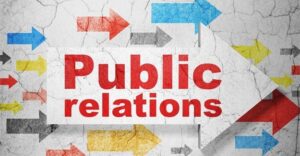Public relations is the art of managing a corporation’s image, and that means using a variety of techniques to get its message across. When it comes to ethical issues, public relations professionals can do much more than just spin a story.
The appropriate response when a company gets bad press depends on the severity of the situation. In cases where there was no actual wrongdoing, PR representatives will often simply ignore the story. Sometimes they’ll try to clarify the facts with reporters, but that’s not always an option if the stories are being published by multiple outlets.
In cases where something has gone wrong, such as an oil spill or employee death, PR representatives will start by trying to mitigate the damage. They’ll usually notify the media about any steps being taken to rectify the situation and deal with any issues that may be affecting the public at large.
Apologies are also important in this situation. A company needs its customers’ trust, and showing remorse for mistakes builds goodwill for future events. In some cases, it can even be enough to keep consumers from boycotting a brand entirely.
A good PR representative will work with company executives and external consultants to determine how to handle every situation that arises during their career. Each problem is unique and requires its solution
Leveraging PR to solve Issues
The best way to handle ethical issues is to address them before they become problems. PR professionals must develop an ethical policy that can be applied in all situations. This should include requirements for how the organization will deal with the media and the public, how business decisions will be made, and how employees should handle ethical dilemmas.
When faced with an ethical dilemma, PR professionals should consult organizational policies as well as their consciences to determine the best course of action. If a decision can’t be made internally, it may need to be referred to higher levels within the organization or even outside counsel.”
The phrase public relations is often associated with media relations and external communications, but the definition of PR has become much broader. Essentially, public relations is the practice of managing how an organization is perceived.
PR professionals are responsible for creating strategies that shape how an organization’s internal and external audiences perceive it. This includes communicating with customers, investors, employees, and even suppliers across various channels.
However, unlike advertising or marketing, where companies can promote products and services in a way that makes them look good, in PR, they cannot control the content or opinions that are shared about them . That is where ethical issues can arise.




